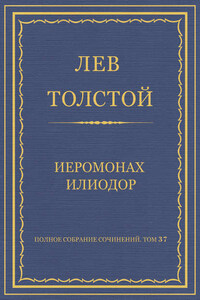I
FRENCH AND ENGLISH HOMES
The English, whose knowledge of France consists in a fair acquaintance of that part of Paris lying between the Madeleine and the Faubourg Montmartre, affirm that family life is unknown on our side of the Channel, putting forward as proof the fact that the French language cannot boast of possessing the word home, that appeals so strongly to the British heart. Their conclusion is sublime: Since the French have no such word, they say, it is very evident that they have not the thing. As to the word itself, I am inclined to think they may be right; we have not, or rather we have no longer, a perfect equivalent for the English expression, as our pretty word foyer is only used in pretentious or poetical language. In ordinary conversation the Frenchman does not refer to his foyer. Il rentre à la maison, chez lui. M. Perrichon, alone, returns to his foyer. Our old French possessed an equivalent for the English word home. It was a substantive that is still with us, but we have it to-day in the form of a preposition – I mean the word chez, which is no other than the word case. The Frenchman of olden times said: "Je rentre en chez moi."
But enough of philology.
I own that an apartment on the fifth floor, au dessus de l'entresol, would not suggest to the heart what the home does to every English mind. But the piquancy and humour of this malevolent criticism, founded, like all international prejudices, on the most crass ignorance and the narrowest patriotism, consists in the fact, that in all parts of London, at the present time, enormous barracks of eight and ten storeys, called flats, are being raised, where the English, tired of the tyranny of domestics, seek refuge, at the terrible risk of likening to Chicago, not only that part of the city devoted to business, but all the pretty, peaceful neighbourhoods, that made London, in summer, the most charming city in the world. They offend the eye, even in St. John's Wood and Hampstead, etc.
True, we have quite near Paris, Ville-d'Avray, Fontenay-sous-Bois, Enghien, Meudon, Bellevue, and I do not know how many more delightful places; but they are suburbs, and not rus in urbe, like Chelsea, St. John's Wood, Hampstead, and many others practically in the heart of London.
France, completely absorbed by Paris in all that is written about her in foreign countries, is as unknown of the English people as the forbidden land of Thibet. Provincial France (where all enjoy the possession of homes, English fashion, plus gaiety), the laborious and thrifty population of our villages (who are the fortune and salvation of France), our family life (narrow, exclusive, nay almost mean, I own it, but made up of love and devotion) – all these are a sealed letter to our neighbours over the Channel, of which a goodly number still hallow the venerable joke, that the French live on frogs and snails. For that matter, there are also in France a great many people perfectly convinced that an Englishman, tired of his wife, may with impunity go and sell her at Smithfield Market. We are quits. As we travel far less than the English, it is not surprising that we should know them still less than they know us. We cannot throw stones at them. In the utter ignorance of what exists and takes place in foreign countries, there are few nations to which France cannot give points.
II
THE HOUSE IN ELM AVENUE
Of all the rustic neighbourhoods bordering on London city, there is none prettier, fresher, and more verdant than St. John's Wood. It is the refuge of workers in search of light, air, and tranquillity. Painters, sculptors, writers, journalists, actors, and musicians – in fact, the majority of the highest intellectual Bohemia – inhabit these semi-rural acres, lying between Regent's Park and Hampstead Heath. Among the leafy haunts of St. John's Wood, numberless masterpieces have been produced by writers and artists whose fame has rung through the world. It is there, in short, that chiefly congregates the artistic intelligence of London. If you doubt my testimony on this point, apply direct for further particulars to the inhabitants of this favoured district.
No. 50 Elm Avenue, St. John's Wood, did not attract the gaze of the passer-by. Walled around and almost hidden by large trees, the house, which could be seen through the iron gates, was a modest, unpretentious, two-storeyed structure. On the ground floor it was traversed by a long vestibule. Those who had been privileged to enter it knew that there was a long drawing-room and boudoir on one side, and on the other a spacious dining-room, and a library with a French window and steps leading down to a beautiful garden, surrounded by spreading elms and chestnut trees. On the outside, glossy ivy with gnarled stems mantled the lower part of the house, and in autumn bold virginia creepers hung wreaths of scarlet around the chamber windows. At the side of the house, with the door opening on the adjacent street, stood a building with high north window, which indicated that the house was the abode of an artist. In this spacious, well-lit studio, worked Philip Grantham, A.R.A.











